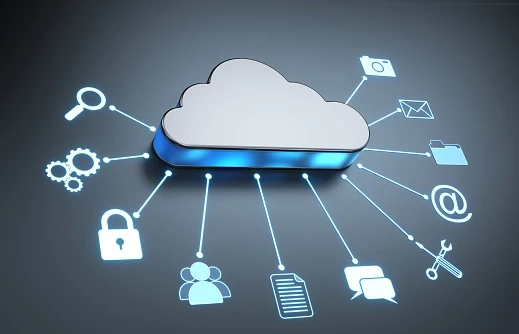There are many different cloud backup solutions available, but not all of them are the best way to protect your data. Some solutions are more reliable than others, and some are more affordable. It is important to research the different solutions before deciding which is the best for you.
What are cloud backup solutions?
Cloud backup solutions are becoming more and more popular due to the many benefits they offer. By using a cloud backup solution, businesses can easily and securely back up their data off-site. This can help protect them from data loss in the event of a disaster or system failure.
Cloud backup solutions are also a great way to protect your data from ransomware attacks. Ransomware is a type of malware that encrypts your data and holds it ransom until you pay the attacker. By having a cloud backup solution in place, you can rest assured that your data will be safe even if your computer is infected with ransomware.
Cloud backup solutions are also a great way to keep your data safe from accidental deletion or loss. If you ever lose your data, you can easily restore it from your cloud backup.
Overall, cloud backup solutions offer a number of benefits that businesses can take advantage of. If you are looking for a way to protect your data, a cloud backup solution is a great option to consider.
What are the benefits of using cloud backup solutions?
There are many benefits to using cloud backup solutions. Perhaps the most obvious benefit is that it provides a way to back up your data off-site. This is important, because it means that your data is not only protected in the event of a local disaster, but also in the event of a larger disaster that affects your entire area.
Another major benefit of cloud backup solutions is that they are often much more affordable than traditional backup solutions. This is because they typically rely on off-site storage, which is much less expensive than on-site storage.
Finally, cloud backup solutions are often much easier to use than traditional backup solutions. This is because they typically require no special software or hardware, and can be accessed from any internet-connected device.
What are the different types of cloud backup solutions?
There are three main types of cloud backup solutions: private, public, and hybrid. Private cloud backups are stored on a company's own servers and are only accessible by that company. Public cloud backups are stored on a third-party server and are accessible to anyone who has the appropriate permissions. Hybrid cloud solutions are a combination of the two, with some data being stored on the company's servers and some being stored on a third-party server.
Each type of cloud backup solution has its own advantages and disadvantages. Private cloud backups are typically more expensive than public or hybrid cloud backups, but they offer more security and control. Public cloud backups are cheaper than private cloud backups, but they are less secure and may not be compliant with certain regulations. Hybrid cloud backups offer the best of both worlds, with the security of a private cloud backup and the affordability of a public cloud backup.
How do you choose the right cloud backup solution for your needs?
When it comes to cloud backup solutions, there are a lot of different options to choose from. So, how do you know which one is right for you? Here are a few things to consider:
What are your backup needs?Different cloud backup solutions offer different features. Make sure you pick one that has the features you need, such as file backup, full system backup, or automatic backup.
How much do you want to spend?Cloud backup solutions can vary in price, so be sure to find one that fits your budget.
What kind of security features does the solution offer?Make sure the cloud backup solution you choose has strong security features, such as encryption and password protection.
What kind of support does the solution offer?If you have any questions or problems with your cloud backup solution, it's important to have a support team you can rely on. Make sure the solution you choose offers good customer support.
By considering these four factors, you can choose the right cloud backup solution for your needs.
How do you set up and use a cloud backup solution?There are a few different cloud backup solutions available, and the one you choose will likely depend on your needs. Some popular options include iCloud, Google Drive, and DropBox.
To set up a cloud backup solution, you'll first need to create an account with the service. Then, you'll need to download and install the software. Once that's done, you can start backing up your files.
The process of backing up your files is very simple. Just select the files and folders you want to back up, and the cloud backup service will take care of the rest. You can even set up automatic backups so your files are always backed up.
Using a cloud backup solution is a great way to protect your files in case of an emergency. If your computer is lost or damaged, you'll still have access to your files. Plus, you can access your files from any computer or mobile device with an internet connection.
What are the risks of using cloud backup solutions?
There are many risks associated with using cloud backup solutions. One of the biggest risks is data loss. If your cloud backup provider experiences a data breach or goes out of business, your data may be lost permanently. Additionally, if you lose your internet connection or your cloud backup provider experiences an outage, you may lose access to your data.
Another risk associated with cloud backup solutions is data security. Your data may be less secure in the cloud than it is on your local device. Additionally, your data may be subject to surveillance by the government or your cloud backup provider.
Another risk associated with cloud backup solutions is privacy. Your data may be shared with third-party companies, which may use it for marketing purposes. Additionally, your cloud backup provider may be required to share your data with the government or law enforcement agencies.
Finally, using a cloud backup solution may be more expensive than using a local backup solution. You may need to pay for internet access and for the cloud backup service.
How do you troubleshoot cloud backup problems?
If you are having trouble with your cloud backup, there are a few things you can do to troubleshoot the problem. First, make sure that you are using the correct login information. If you are not sure what your login information is, contact your cloud backup provider.
If you are still having trouble, try restarting your computer. If that does not work, try restarting your modem and your router. If you are still having trouble, contact your cloud backup provider for help.
What are the alternatives to cloud backup solutions?
There are a few alternatives to cloud backup solutions. The first is to use a local backup solution. This is a backup solution that is stored on a local device, such as a hard drive or a flash drive. The second is to use a remote backup solution. This is a backup solution that is stored on a remote device, such as a server. The third is to use a combination of local and remote backup solutions. The fourth is to use a cloud-based backup solution. The fifth is to use a hybrid backup solution.


